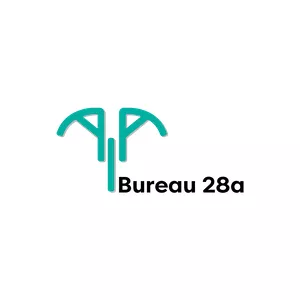Adopted on 14 July 2023, Law No. 988-VIQ, On Public Procurement, replaces the 2001 Law No. 245-IIQ of the same name and subject, which was based on the 1994 UNCITRAL Model Law on Procurement of Goods, Construction and Services. Replacement of the 1994 model law with the UNCITRAL Model Law on Public Procurement (2011) together with the country's internal considerations dictated the adoption of the new Law.
Public procurement is the process of acquiring goods, works or services initiated by the State bodies, State funds outside of the State budget, public entities, and entities controlled by the State. Unlike the old Law applying to entities controlled by at least 30 percent by the State, the new Law does not establish a threshold for such control.
The procurement methods are: (i) an open tender; (ii) two-stage tender; (iii) closed tender (is used for confidential or specific procurements and must involve at least three suppliers); (iv) sourcing quotations; and (v) procurement from a sole source (is used for procurement of unique goods or in urgent or confidential procurements). The method of procurement is determined by the relevant procurement organization depending on the requirements of the Law.
As such, a procurement of an estimated price equal and over AZN100,000 is possible through an open or two-stage tendering process.
Regardless of the estimated price, the following procurement methods may be used only with the approval of the State Service for Antimonopoly Control and Supervision of the Consumer Market under the Ministry of Economy:
- a closed tender;
- a sole-source method; and
- an open tender and sourcing quotations methods resulting in a framework agreement.
The Service considers applications to allow the use of these methods in 20 business days.
Regardless of the method of procurement, the process of public procurement involves the establishment of a temporary working group, known as a procurement commission, responsible for conducting the procedures for selecting a winner and concluding a procurement agreement.
The Law defines the stages of public procurement: (i) planning and pricing; (ii) formation of the commission; (iii) pre-selection of suppliers and preparation of documents; (iv) preparation of terms and conditions; (v) posting of announcement and invitations; (vi) receipt and opening of proposals; (vii) evaluation of proposals; (viii) documenting the results of evaluation; (ix) signing framework agreement; (x) notification of acceptance of the offer and delivery of procurement agreement to the supplier; (xi) signing the agreement, performance guarantees; (xii) entry into force of the agreement; and (xiii) reporting.
The requirement of the old Law to conduct public procurement exclusively through the Unified Portal at https://etender.gov.az/ is included in the new Law. To protect confidential information related to procurement, paper carriers may also be used.
The Law introduces a new concept: a framework agreement. This is an agreement between a procuring organization and two or more suppliers that defines the terms and conditions for a periodic (a budget year) or repeating procurement. Scope and value of supplies under a framework agreement are not defined at the time of making it.
The Law does not cover the following: (i) supplies (of products, works or services) exclusively from government agencies and natural monopolies with regulated prices; (ii) obtaining loans; (iii) transactions with securities, currency exchange, and related services; (iv) procurement under public-private partnerships; (v) notarial services; (vi) investment and asset management services; (vii) procurement in relation to banknotes, foreign exchange reserve management, foreign exchange purchase and transportation, procurement in the exercise of control measures, including a bank resolution, over controlled subjects; (viii) centralized procurement of foodstuff financed out of the State budget; (ix) procurement of stationery for courts of first instance; (x) supplies in the Alat Free Economic Zone; (xi) procurement by an entity transferred into management by a lottery organizer and a gambling operator; (xii) small purchases up to AZN10,000 (AZN20,000 for some organizations); and (xiii) procurement for defense and security under defined criteria. Procurement using funds of international organizations is carried out according to the terms of an applicable instrument.
Suppliers may appeal actions, inactions, and decisions of both the procurement organization and the Service in an administrative manner. They also have the right to appeal to courts to protect their rights and legally secured interests.
The Law has been enacted and is awaiting entry into force starting 1 January 2024.
Originally published September 2023
The content of this article is intended to provide a general guide to the subject matter. Specialist advice should be sought about your specific circumstances.

